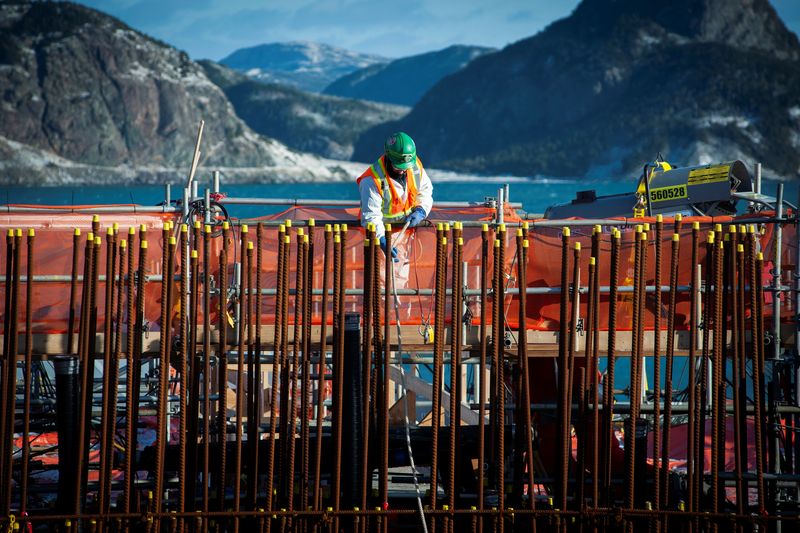By Nia Williams and Shariq Khan
(Reuters) -Cenovus Energy reported a near 11-fold surge in second-quarter profit on Thursday and boosted capital spending and production forecasts, but warned Canadian government plans to cap oil and gas emissions could lead to production being shut in.
Oil prices have scaled multi-year highs this year as Western sanctions against major exporter Russia squeeze an already under-supplied market. Brent crude, the global benchmark, was last trading at over $107 a barrel.
Calgary-based Cenovus, Canada's No. 2 oil and gas producer, said it will increase capital investment by C$400 million ($311.58 million) this year to C$3.3 billion to C$3.7 billion, and raise production by 15,000 barrels of oil equivalent per day (boepd) to 780,000 to 810,000 boepd.
Around C$100 million of the increased spending is due to inflation, with the remainder going to oil sands projects and restarting the West White Rose offshore project in Atlantic Canada.
However, Cenovus remains committed to shareholder returns and will focus on incremental production increases rather than large scale projects, Chief Executive Alex Pourbaix said.
He also criticized federal government plans to cap and cut emissions from Canada's oil and gas sector. Last week the government outlined two options to help cut emissions to 42% below 2005 levels by 2030, which Pourbaix said would not be possible.
"I would say either of those options are more ambitious than what can reasonably be achieved," Pourbaix told a conference call. "I am very worried that if we remain on this path, it could lead to shutting in production, and at a time when the world is literally crying out for more oil and gas production."
Cenovus' production fell to 761,500 boepd in the second quarter, from 765,900 boepd a year earlier due to planned turnarounds. However production is expected to rise beyond 800,000 boepd in the second half of 2022.

Net earnings rose to C$2.43 billion ($1.90 billion), or C$1.19 Canadian cents per share, for the three months ended June 30, from C$224 million, or 11 Canadian cents per share, a year earlier.
($1 = 1.2838 Canadian dollars)
